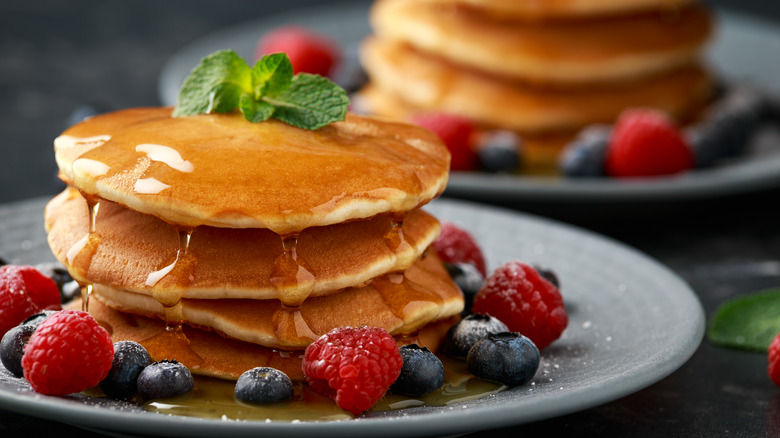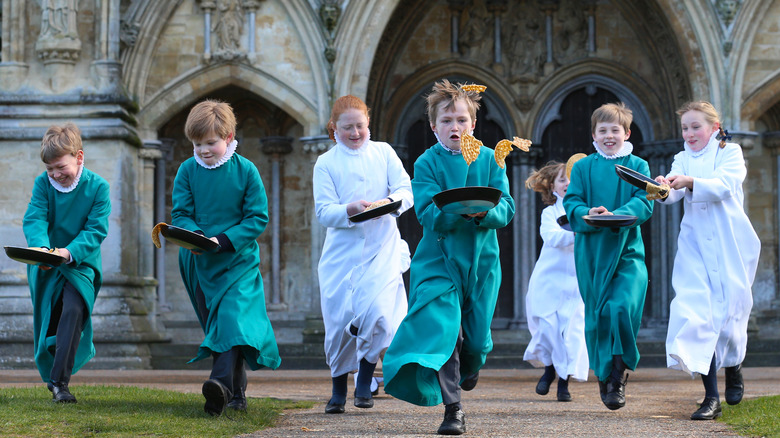The Reason Pancakes Are Typically Eaten On Mardi Gras
Known as Mardi Gras in the United States and celebrated throughout the world by different names, the annual festival brings with it a unique set of local customs. Also known as Carnival, the events surrounding the festivities culminate on Fat Tuesday, the name of which is translated directly from the French (Mardi = Tuesday, Gras = Fat). Famous Carnival events also take place in Brazil, Italy, parts of the Caribbean, and by various other names in countries with significant Catholic populations. The religious origins of the holiday explain not only why we have Mardi Gras, but also how we get the various food traditions associated with it.
In the British Isles, the most well-known event is Pancake Day, and as its name implies, it involves the consumption of delicious pancakes. It takes place on Fat Tuesday but is called Shrove Tuesday in places like Great Britain and Ireland. The date varies because it must always come exactly 47 days before Easter, and falls the day before Ash Wednesday, which denotes the beginning of Lent. Lasting 40 days, Lent is a time during which adherents pray, fast, and abstain from certain foods such as meat, eggs, milk, oil, and sugar. The "fat" in Fat Tuesday does not refer to body weight, but rather to fats like butter, which are not allowed during Lent. Thus, these foods get used up on Fat Tuesday ... and what better way to eat a bunch of butter than in a tasty stack of pancakes?
Why people eat pancakes on Shrove Tuesday
Different cultures use up these forbidden foods differently before the beginning of Lent. In France and Louisiana, there are doll-stuffed king cakes. In Poland, it's the Mardi Gras staple paczki donut filled with jam or custard. Shrove Tuesday is marked in Hawaii with malasada donuts, an eggy-yeasted treat. In Russia, an entire week is dedicated to eating thin, crepe-like blinis during the festival of Maslenitsa.
In the U.K. and Ireland, it's all about the pancakes. Pancake Day traces back all the way to the year 600 when the Pope declared the taboo on what could not be eaten during Lent. Pancakes were a natural fit for using up some of those ingredients rather than wasting them. Pancakes are not just eaten; they also play a role in some of the customs surrounding Shrove Tuesday. Pancake races have been taking place in the U.K. since the 15th century — where racers must carry a frying pan and flip their pancakes without dropping them, all as they run to try and cross the finish line first, often while dressed in religious (or comedic) costumes.
Although Pancake Day isn't as widely known in the United States as Fat Tuesday, the date was declared National Pancake Day in 2006. Visitors to the International House of Pancakes (IHOP) get a free stack of pancakes on this day, part of the restaurant's Month of Giving, in which donations are collected for charities that feed the hungry.


